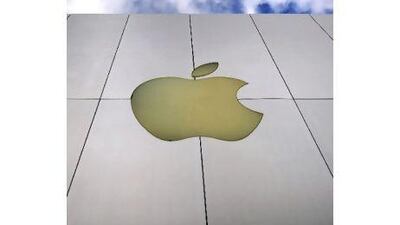Expensive opening salvo
Google has fired the latest salvo in the technology war after snapping up Motorola Mobility for US$12.5 billion (Dh45.9bn).
Since the first HTC Android device was launched in 2008, the mobile operating system has experienced a meteoric rise.
Nearly 43 per cent of the operating systems used on smartphones this year are Android, according to Gartner Research, with Samsung, LG, Sony Ericsson and, of course, Motorola jumping on the bandwagon.
The growth of the Android system, from smartphone makers and app developers, has also put pressure on Nokia. The Finnish company's market share in the mobile phone sector has diminished this year, dropping to 22 per cent from 30.3 per cent last year, according to Gartner Research.
In an attempt to improve its flagging fortunes, Nokia announced in February it was teaming up with Microsoft to ditch its Symbian software for a version of Windows Phone 7, known as the Mango release.
The move was widely seen by commentators as an attempt by Nokia to make its smartphones more attractive, while giving Microsoft an opportunity to take on Apple, Android and BlackBerry, whose maker Research In Motion (RIM) has been brought into the technology war.
RIM recently unveiled its new BlackBerry line-up in an attempt to help the Canadian company stage a fightback against the rise of Android and the dominate player in the market place, Apple.
It has been Apple, of course, which has prompted Google's move. Its latest deal not only gives the Californian company the ability to manufacture mobile phones, it also allows Google access to Motorola's wealth of patents and chip technology. This will open up further opportunities for Google to compete more aggressively against arch-rival Apple in the tablet market.
But questions will be asked about whether it can buy its way into the smartphone market. The decision to snap up Motorola Mobility is not without risk, but highlights the key battleground for high-tech companies in the future.
Jobs takes credit
Apple briefly became the most valuable company in the world last week when it edged past the energy giant ExxonMobil. That was due in no small part to the genius of Steve Jobs.
Since the launch of the iPod, Apple's ventures into the mobile arena with its iPhone and iPad range has established the Californian company as a fearless leader in the technology world.
Apple has set the agenda for other companies to follow by creating their own versions of touch-technology products.
The rise of Google's Android system has even come about as a result of shoppers wanting an alternative to Apple's touch technology.
But in contrast to Android, Apple has not adopted an open source model, keeping its code under wraps.
Developers can download a software kit and upgrade applications that can be sold on Apple's App Store. A percentage of each sale goes to Apple while the rest goes to the developer.
Regardless of its tight controls around its software and products, Apple's smartphones and tablets have become must-have items, built around the strong branding and marketing genius of Mr Jobs. He has made these products leaders of the technology pack.
With each new launch, crowds across the globe continue to line up to snap up the latest iPhone or iPad models. Even here in the UAE, people simply can not get enough Apples.
Naturally, the company has become an example for Google as it has combined designing flair with aesthetic software prowess. This is what Google wants to create with Motorola.
"You don't see a lot of these industry wars unless there's market displacement," Jim Gatto, a partner at Pillsbury Winthrop Shaw Pittman, told Bloomberg News. "When you look at the companies who have really innovated and driven the market for smartphones, many of them weren't in the phone market five years ago."
Let the battle begin.

